The Resurrected Review
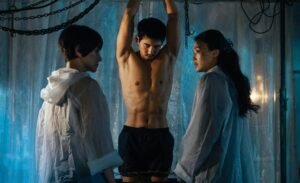
Director: Leste Chen and Chao-jen Hsu
Date Created: 2025-10-09 19:27
4
The Resurrected Review: Directed by Leste Chen and Chao-jen Hsu, this Taiwanese drama 回魂計 comprises nine intense episodes, each of about one hour of run time. The series stars Shu Qi and Lee Sinje portraying two mourning moms who put their grief to grotesque extremes, along with Fu Meng-po, Chung Hsin-ling, Caitlin Fang, Lin Ting-yi, Patrick Nattawat Finkler, Vivi Chen, Rexen Cheng, Liu Chu-Ping and others.
The Resurrected Review
It begins with a ritual that is as literal as it is out of a dark fairy tale, a resurrection that hooks you from the very beginning, but is revealed almost at once to be far more nuanced. Rather than being some sort of generic supernatural horror, The Resurrected is a moving study of grief, retribution, and the cost of vengeance.
Netflix’s The Resurrected is centred around two women, Hui-chun and Chao Ching, who come together in tragedy. One woman’s daughter was brutally attacked in a senseless crime and lies in a coma, while the other’s was brutally killed by a conman named Shih-kai. Even after the man is killed for committing the crime, their anger doesn’t relent. Justice, as dictated by the laws, fails to materialise as sufficient. The two mourning mothers commit an unthinkable crime: they resurrect Shih-kai from the dead so they can exact their own revenge. What follows isn’t revenge but moral decline, in the process of mourning, illustrating the erosion of boundaries between victim and perpetrator.
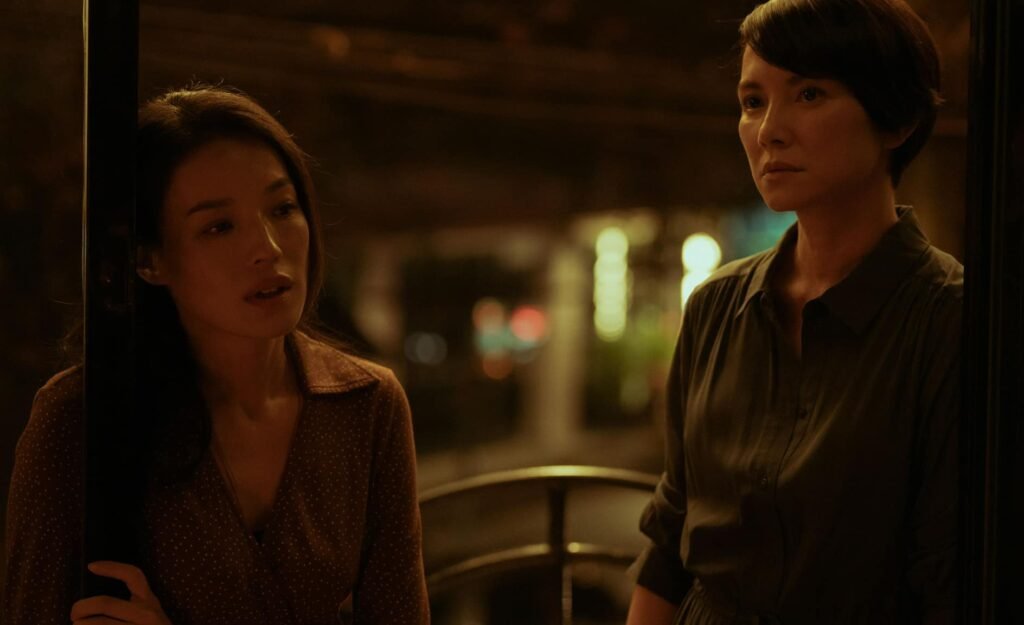
I found the Netflix series The Resurrected very gripping because it eschews jump scares and ghosts to terrify. Real horror is based on human emotion, fury, grief, guilt, and being stuck in the past. While the show calls on supernatural forces in the form of resurrection rituals and foreboding symbolism, it is as much a mental drama as it is horror. That is why it is distinctive from the darker thrillers that populate the service. It is not about monsters that hide in shadows, but about the monsters that grief can make of us.
The pacing of the storytelling is purposefully slow in the opener, but it pays off. The premiere takes time developing the emotional groundwork for the characters of Hui-chun and Chao Ching. We witness their isolation, their silent pain, and their own need for closure. That development is well-repaid when the plot unfolds darker in the latter parts. By the time the actual resurrection occurs, you realise why these women would risk it all, perhaps their very souls, in order to make their suffering count. Personally, I enjoyed that the show didn’t jump headfirst into the revenge story. Instead, it allowed the feelings of the characters to catch their breath, making the latter moments all the more impactful.
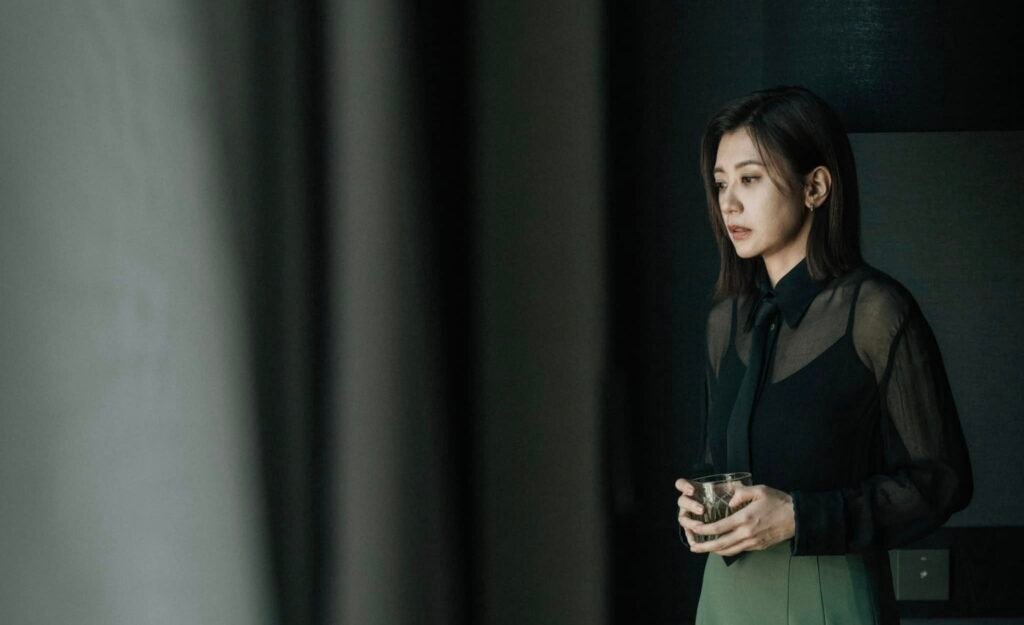
The Resurrected Series is also distinctive in mood. The tension exists in each shot, from the muted tones to the moments of silence that linger. The cinematography is effective in conveying the physical and emotional isolation of the characters. The fictional city of Bengka, in which the film is set, is almost a ghost in and of itself, a world in which guilt and grief linger in the environment. The sound design, similarly, functions to create the discomfort, but in such a manner that it is never overt. There is a gradual fear that occurs with each of the moments of silence, each of the echoes of grief that linger.
Also Read: Caramelo Review: Heartwarming and Wistful Story that Affirms that Dogs are Humans’ Ultimate Therapy
Part of why I cared about Netflix’s The Resurrected was that it did not offer easy solutions. As the story unfolds, the distinctions between cruelty and justice become blurred. Seeing the two moms torture and manipulate their brought-back enemy is disgusting, as well as tear-jerking. You find yourself with moments where you cannot help but feel bad for them and moments where you cannot comfortably abide by their actions. It is that moral quandary that makes the show so compelling. It is a reminder that retribution, whether or not it is correct, is going to cost.
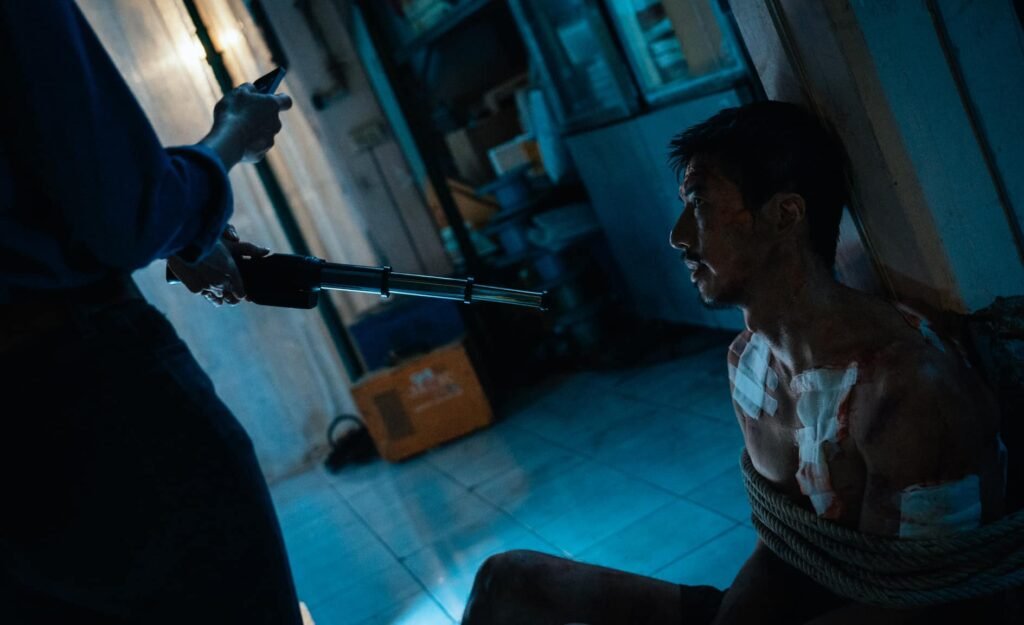
By the end of the latter episodes, the twists start coming in waves, dramatic twists regarding the forgery, shocking betrayals, and an emotional revelation that completely transforms all. Without divulging much, the ending leaves you musing about the ways in which revenge consumes not just the one who seeks it but everyone around them. What did work for me in terms of the ending is that it didn’t bother to tie up all loose ends. It left me in discomfited silence for a few minutes after the credits, trying to process what you just saw. It is that kind of ending that leaves you in stunned silence for some minutes after the credits, trying to process what you just saw.
Performance-wise, Shu Qi gives one of the best performances of recent years. Her character of Hui-chun is nuanced with anger and vulnerability. You can believe the turmoil in her eyes, the perpetual conflict between hate and love. Lee Sinje, playing the opposite character, gives Chao Ching a more aggressive aura. She directs all of that pain externally, with a sense of retribution in mind. As individuals, their chemistry is both heated and poignant. They’re not united by friendship, but by their joint trauma, and that makes their dynamic absolutely engrossing to watch.
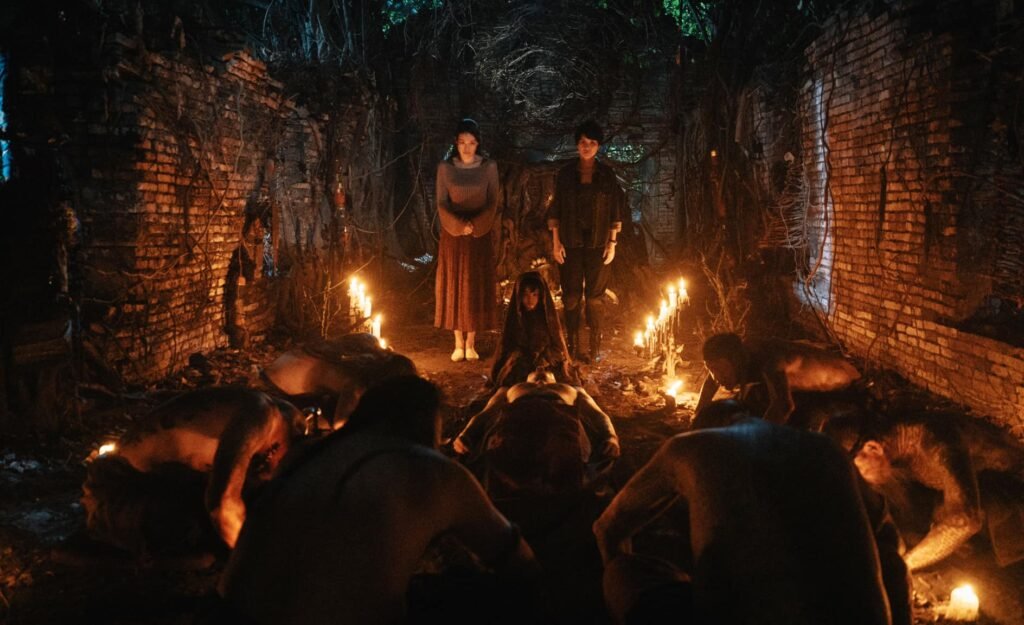
If it were to criticise, it would be that some of the scenes stretch unnecessarily, particularly in the middle episodes. Its pacing is dragged down exactly when you want it to pick up some pace. Some of the visual effects in the ritual sequences also come across as slightly cartoonish with respect to the otherwise practical tone of the show. In short, these are just problems in a show that is as character-driven as it is. Storytelling and performances here take centre stage, and both of them shine.
Netflix The Resurrected Review: Summing Up
Taiwanese series The Resurrected is heavy, in parts uncomfortable, and emotional. It is, however, well-written and acted too. It is also best when it successfully brings that supernatural concept laboriously to life and not through horror conventions. It considers exactly how far grief can take a human being and just how much damage revenge can inflict on that remnant of a human being. This drama isn’t for everyone, but if you’re one for slow-burning shows that make you think and that make you feel, then you need to see this drama.
Also Read: Néro the Assassin Review: Gritty Fantasy That Fails to Cast a Spell
